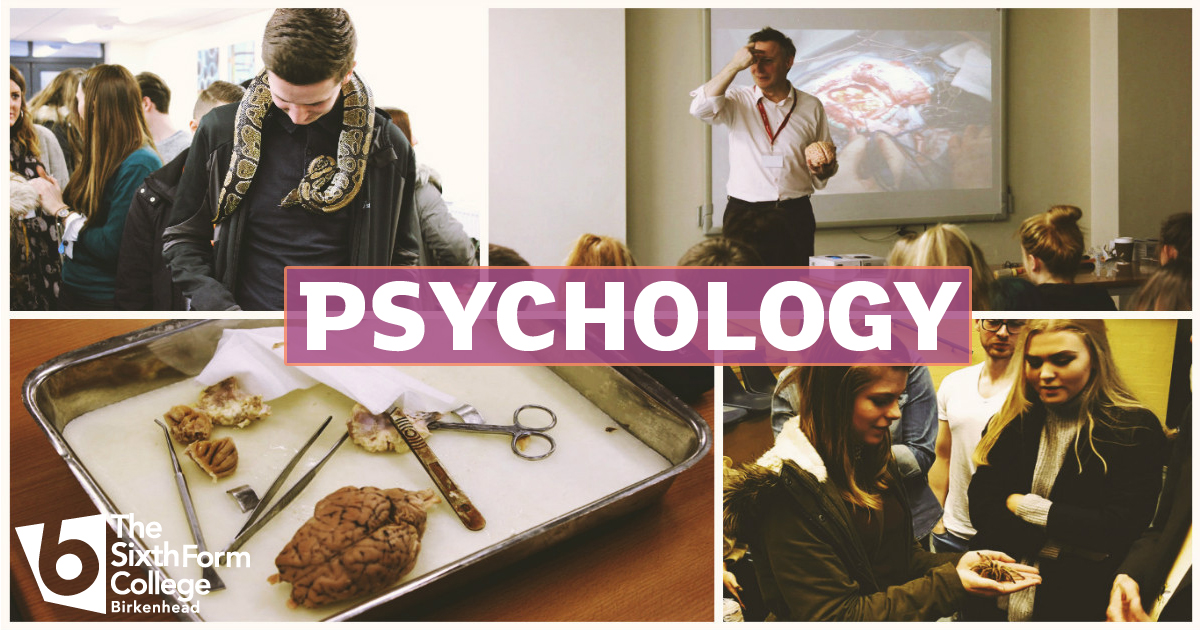3 May 2016

It was the subject chosen by more of our students than any other last year and figures so far for September 2016 show that the popularity of studying Psychology at The Sixth Form College is not for waning.
Only Law was more frequently chosen by our 2015 leavers for their degree course than Psychology: testament to the national climate which places Psychology as the second most popular of all undergraduate programmes after Nursing.
Trips to London conferences, brain dissections, creepy-crawly phobia days and talks on the criminal mind may have a bearing on choosing Psychology at the college, along with the commercial success of TV programmes like the ‘CSI’ series and ‘Silent Witness’, but in one of life’s convenient coincidences, a psychologist can best explain why the subject often sells itself.

Head of Psychology at The Sixth Form College, Rob Myatt, believes that the challenge of a subject previously unstudied in secondary school can have enormous appeal, but also the decision lies in answering the question ‘why?’.
Rob said: “Students will look into what studying Psychology entails and find that we’re discussing experiences and behaviour that they can relate to. Take phobias, for example. Even if it’s not an extreme phobia, most people will have a genuine fear of something, so they can empathise and want to understand why they might have that particular fear. Another instance is how we behave in groups compared to individually – people can relate to behaviour being different when at a party rather than in smaller groups. That grabs their interest; they want to know why it happens.”
Trying to answer that all important question of ‘why?’ may be a harder task than it seems, however, but one which can aid students on their future paths in both study and career.

Psychologist Rob explained that mathematical, scientific and literary abilities all help to make a successful student, and said: “It may be that we have to examine multiple pieces of research and weigh them against each other to draw conclusions, rather than having a definitive answer. That process can feel extremely rewarding, and is one which gives students the transferrable skills for studying any number of subjects in university outside of Psychology.”
On a national level, the growing emphasis on mental health means that there are major growth areas in careers for those with a psychological knowledge base, but that adds to a multitude of vocational job options that put Psychology students at a distinct advantage, as Rob describes:
“Take marketing, for example, where psychological and positive association techniques are used to sell your product; even the colours that are used in adverts and signage are chosen because of Psychology. Social services, police, human resources – all of these areas benefit from people with an understanding of the subject, and that’s not even mentioning the more traditional fields associated with Psychology, like education or research. It opens many doors for people.”
.png)


(1).jpg)

.jpg)








_(403x640).jpg)